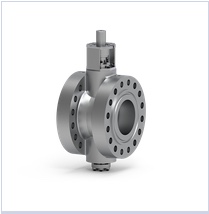12-11-2020
Linde and Evonik offer joint technology solution to extract hydrogen from natural gas pipeline networks
Linde and Evonik Industries offer a fully integrated, holistic solution combining different technologies to extract hydrogen from natural gas pipeline networks.
Currently there is growing interest in the prospect of using the existing natural gas infrastructure more extensively to transport hydrogen (H2) — green H2 in particular. Numerous initiatives have already been launched around the world in order to develop enabling technology concepts. Existing pipeline networks could be used to efficiently transport H2 over long distances and deliver it to end points along this infrastructure, where it could be fed into industrial applications or provide a source of energy.
For this to happen, however, the hydrogen must be efficiently separated from the natural gas blend at the point of extraction. Linde and Evonik Industries already offer a fully integrated, holistic solution that brings together various technologies to separate the H2. This solution combines pressure swing adsorption (PSA), a technology in which Linde has decades of experience, with high-performance “HISELECT® powered by Evonik” membranes to deliver hydrogen at purity rates of up to 99.9999 percent. “This high-purity stream of hydrogen could then be delivered to fueling stations, for example, to power fuel-cell vehicles. But it’s not just a source of energy; it’s also a valuable feedstock especially for the chemicals industry,” explains Jürgen Nowicki, Executive Vice President of Linde plc and CEO of Linde Engineering. H2 is an important feedstock for various industrial production processes and is required in high volumes for these applications. “We already have technologies on the market; technologies that are ready to use as soon as the market signals increased uptake for H2 blending into natural gas networks and the corresponding need for separation processes,” explains Nowicki. This offering also strengthens Linde’s position as a leading provider of hydrogen technologies and applications.
A demo plant at the Linde Dormagen site in Germany will act as a showcase for the efficiency and cost effectiveness of this technology. “The economic viability of extracting hydrogen from the current natural gas infrastructure depends largely on the efficiency of the gas separation technology. Membrane selectivity is a key success factor,” explains Dr. Harald Schwager, Deputy Chairman of the Executive Board of Evonik. “We are the world’s only fully backward-integrated producer of gas separation membranes. Drawing on our many years of experience in polymer chemistry, we are able to adjust key membrane properties at material level, providing customers with a highly selective and robust separation technology.”
One of the first successful reference cases building on the collaboration between Linde and Evonik in the field of membrane-based gas separation was a helium processing plant in Mankota, Canada, which went on stream in 2016. The two separation processes — membrane and PSA technologies — were also combined in this facility. It was the first helium processing plant of its kind worldwide and now processes more than 250,000 standard cubic meters of raw gas per day to gain industrial-grade helium purity levels (99.999 percent). Following on from this success, Linde and Evonik expanded their collaboration, developing gas separation solutions for natural gas processing, synthesis gas applications and ammonia plants. Thanks to their robustness and superior selectivity, “HISELECT® powered by Evonik” membranes open up a host of innovative opportunities, especially when combined with other technologies offered by Linde. “We continue to strengthen our position as a leading provider of all-inclusive separation packages by rounding out our offering with forward-looking solutions for separating H2 from natural gas streams,” concludes Nowicki.
Sponsor:
News Category:
-
Evonik launches Purocel™ series to advance pyrolysis oil capability
Evonik has announced a comprehensive suite of Purocel™ products and catalysts technologies that improve the quality of pyrolysis oil, driving greater circularity for ...
27-02-2025
-
Catalyst recycling & sulfur recovery: A new approach
(Webinar) - Evonik’s catalyst reuse technologies enable today’s sulfur recovery unit operators to gain the activity they require while minimizing cost and environmental ...
24-10-2024
-
Excel® Technology: The Sustainable Solution for HydroProcessing Catalysts
(Webinar) - Unveil the path to sustainable catalyst processes with Excel® Rejuvenation Technology! Join us as we delve into the art of catalyst rejuvenation, uncovering ...
27-09-2023
-
Evonik expands catalyst production in China
Evonik Industries has completed the relocation and expansion of its precious metal powder catalyst plant in Shanghai Chemical Industrial Park (SCIP). Production is scheduled ...
12-09-2023
-
Evonik to supply catalyst for new Röhm MMA plant
Evonik has signed an agreement to scale up and produce custom catalyst for Röhm’s new methyl methacrylate (MMA) production plant in Bay City, Texas, USA, which is ...
08-08-2023
-
Evonik Catalysts invests in capacity expansion to support Activated Nickel Catalysts market
Evonik Catalysts is fully on track to expand its production capacities for activated nickel powder catalysts marketed under the KALCAT® and Metalyst® brands at its ...
28-03-2023
-
Evonik Catalysts strengthens market position through further expanding its innovative portfolio
Evonik is pooling its expertise and integrating its alkoxides business into the Catalysts Business Line. The extensive portfolio of heterogeneous catalysts is thus now ...
17-01-2023
-
New head of Evonik’s Catalysts business line
Sanjeev Taneja has taken over the management of Evonik’s business line Catalysts from July 1, 2020. On the same date, the Catalysts business line became part of the ...
09-07-2021
-
At the beginning of January, a pilot plant for optimizing the production processes of hydrogenation catalysts for oils and fats was inaugurated at Evonik's site in Dombivli, ...
06-02-2021
-
Linde and Evonik Industries offer a fully integrated, holistic solution combining different technologies to extract hydrogen from natural gas pipeline networks. Currently ...
12-11-2020

















